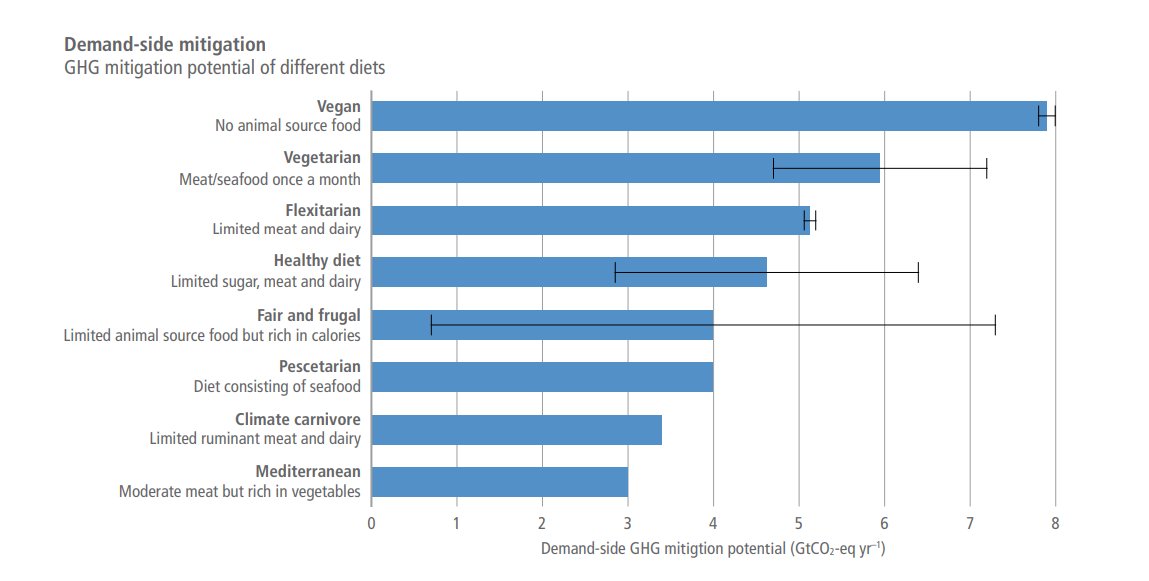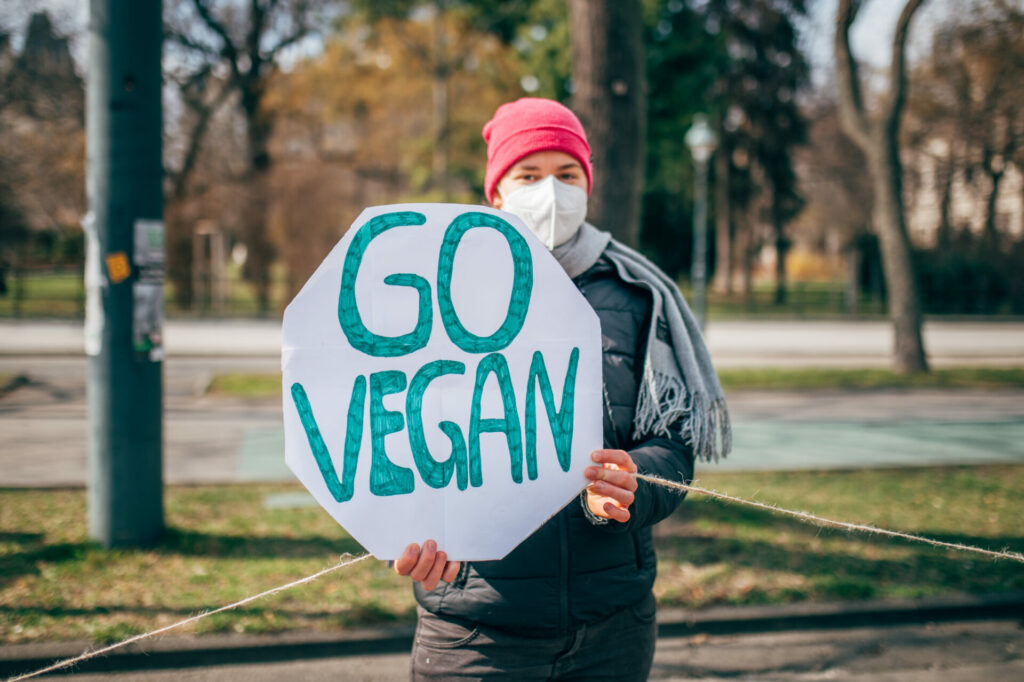The Plant Based Treaty, a climate roadmap endorsed by politicians, Nobel Laureates, and other prominent figures, proposes a fast transition toward plant-based food alternatives as a response to the climate emergency.
The treaty (released in June) states that meat, dairy, and egg consumption are damaging “planetary boundaries, risking food security, and harming human health and animal welfare.” It references multiple studies, reports, and publications by the Intergovernmental Panel on Climate Change (IPCC) which demonstrate that veganism can have a positive impact on the global climate.
The treaty states that veganism is the “optimal diet to fight climate.” The group cites a 2020 IPCC Special Report on Land Use which states that a mass adoption of veganism could save 8-16 gigatons in greenhouse gas (GHG) emissions every year.
The agricultural sector is one of the largest polluters on the planet. Statistics from the United Nations Environment Programme and the Climate and Clean Air Coalition calculate that around 32% of global methane emissions come from animal agriculture.
Go vegan for the planet?
Citing a 2020 paper, the group asserts that even if fossil fuel emissions were to stop immediately, “emissions from our food systems alone could increase global temperatures by more than 1.5C.”
“Immediate, rapid, and sustained cuts to greenhouse gas emission from both fossil fuels and animal agriculture is imperative to avoiding catastrophic climate breakdown,” the group states.
A 2019 special report by the IPCC claims that if the world were to go vegan by 2050, humanity would be able to meet the world’s food needs with far less agricultural space, allowing for “considerable forest regeneration and reducing land-based GHG emissions to one-third of the reference ‘business-as-usual’ case for 2050, a reduction of 7.8 GtCO2 every year.”

Predicted greenhouse gas emissions savings for different diets. Credit: IPCC
The group identifies animal agriculture as the primary driver of methane emissions, deforestation, loss of carbon sinks, ocean acidification and biodiversity loss. The paper says that the Paris Climate Accords do not go far enough in tackling fossil fuels or animal agriculture.
A matter of life or death
The proposed Plant Based Treaty would be founded on three core principles: stopping the expansion of animal agriculture, redirecting subsidies to the establishment of plant-based food systems; and restoring ecosystems.
112 countries have recently signed up to the Global Methane Pledge, which aims to cut emissions by 30% by 2030. The group says that measures such as methane-reducing animal vaccines or seaweed additives for cattle feed don’t go far enough.
Instead, the paper calls for animal agriculture to be abandoned entirely. It calls this “diet change, not climate change” and warns that a failure to move towards veganism will result in humanity “eating (its) way to extinction.”
IPCC reviewer Dr Peter Carter is supportive of the group’s proposals, stating that“global veganization is now a survival imperative”.
Related News
- Canine diets: Vegan dogs healthier than carnivores
- Vegetarianism ‘no longer niche’: more Belgians go without meat
- Belgians buy into plant-based meat alternatives
The treaty also addresses other major environmental concerns such as deforestation and the restoration of ecosystems and biodiversity. These, too, could be greatly limited – if not reversed – if there were a large-scale conversion to plant-based diets.

